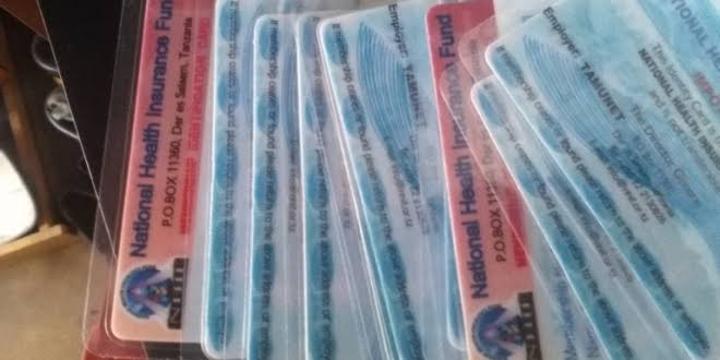Africa-Press – Tanzania. The National Health Insurance Fund (NHIF) is capitalising on technology to avert cheating and fraud when service providers’ file claims.
The fund, which is celebrating its 20 years of providing health coverage for the nation, said technology not only helps to eliminate cheating and fraud but also simplifying and quickening claims payments.
The NHIF Director of Medical and Technical Services Dr David Mwenesano said for instance the fund received 600bn/- worth of claims but after thorough scrutiny paid only 477bn/- last year.
“The amount paid was merely 77 per cent of the total claims…with the technology, it’s easier to avert cheating and fraud claims.
“Some of our accredited health facilities are on e-claim platform and processing and paying them is within 14 days once the claims are filed,” Dr Mwenesano said at the one-day meeting between the fund and editors in Dodoma.
The online claims are filed instantly and the fund starts working on the claims within 24 hours. The platform also sends a text message to a patient to know not only that he/her card has been used but also the cost of treatment.
“This first alert card user that his/her card has been used and also the billing and one can easily report to any irregularities, to prevent cheating, Dr Mwenesano, who once a specialist at Muhimbili National Hospital, said.
Shortly, NHIF wants most of its accredited service providers, especially in urban where they are no internet challenges to go online.
The Fund’s Director of Membership Services, Mr Christopher Mapunda said also they have introduced a patient biometric registration system to better the services and prevent fraudulent claims.
Way forward patients will sign using a biometric system that is connected with the NIDA platform. “This will help a great deal to reduce cheating since we are losing a lot of beneficiaries’ money due to fraud-related claims,” Mr Mapunda said.
The biometric system will eliminate forgery where a member card was used by more than one person to access hospital services.
“This technology will help us reduce card abusing since we are working, in near future, to do away the usage of cards for accessing our systems, Mr Mapunda said adding: ” We want to reach a point where the card usage will be unnecessary.”
Mr Mapunda is also said to have introduced the NHIF app and new services where existing members can slightly up their contributions and be able to be treated outside the country as well as receiving emergence evacuation services.
NHIF Director-General Bernard Konga said the fund will not hesitate to de-register any accredited service provider from their list for mismanaging their members and engaging in fraudulent activities.
“Those institutions dare not to comply with fund’s procedures will not hesitate to delete from our list of health providers, regardless of the facility name, ” Mr Konga said.
Mr Konga said around 60 to 70 per cent of hospitals traffic is coming from NHIF. The number of accredited health centres by the fund rose from 3167 in 2001 to the current 9000 centres and beneficiaries from 661000 to 4.5 million respectively.







